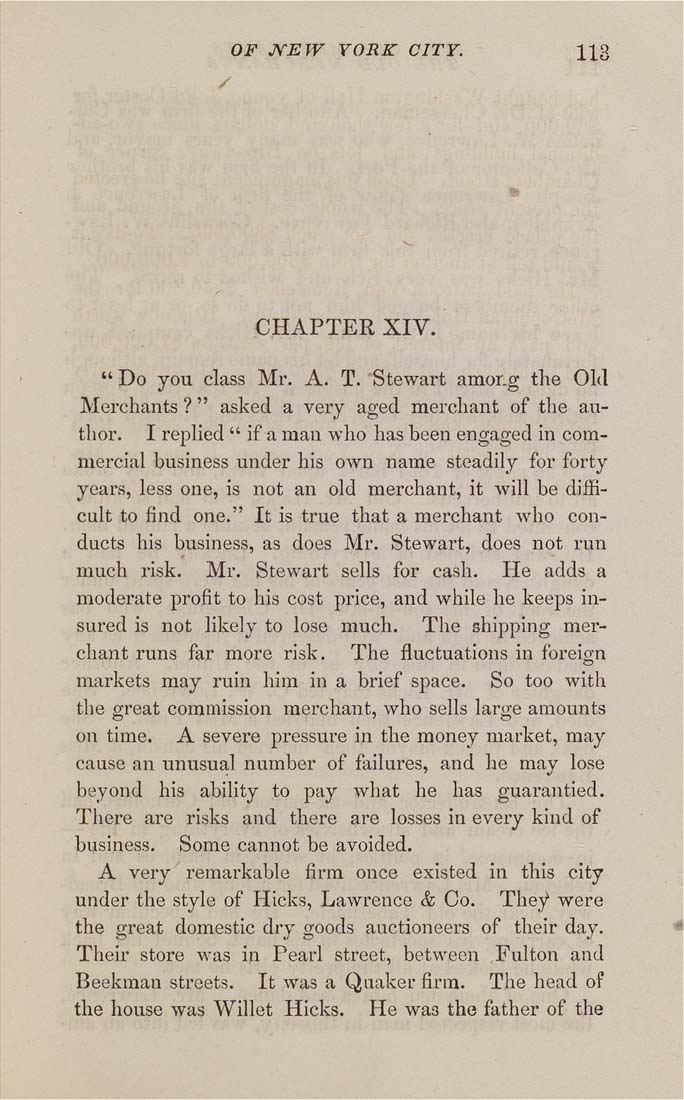OF JVEW YORK CITY. 112
CHAPTER XIV.
" Do you class Mr. A. T. Stewart amor.g the Old
Merchants ? " asked a very aged merchant of the au¬
thor. I replied " if a man who has been engaged in com¬
mercial business under his own name steadily for forty
years, less one. Is not an old merchant, it will be diffi¬
cult to find one." It is true that a merchant wdio con¬
ducts his business, as does Mr. Stewart, does not run
much risk. Mr. Stewart sells for cash. He adds a
moderate profit to his cost price, and while he keeps In¬
sured is not likely to lose much. The shipping mer¬
chant runs far more risk. The fluctuations In foreign
markets may ruin him In a brief space. So too with
the great commission merchant, who sells large amounts
on time. A severe pressure in the money market, may
cause an unusual number of failures, and he may lose
beyond his ability to pay what he has guarantied.
There are risks and there are losses In every kind of
business. Some cannot be avoided.
A very remarkable flrm once existed in this city
under the style of Hicks, Lawrence & Co. They were
the great domestic dry goods auctioneers of their day.
Their store was in Pearl street, between Fulton and
Beekman streets. It was a Quaker firm. The head of
the house was Wlllet Hicks. He was tho father of the
|








